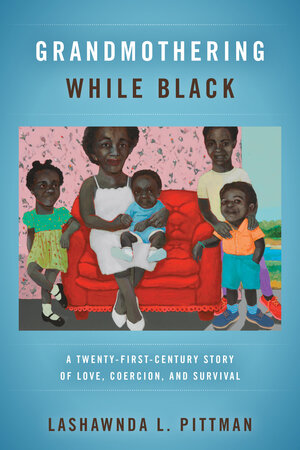
Film Release – 10 Year Celebration of Domestic Worker Rights
June 18, 2021
UN Women’s Feminist Plan for Sustainability and Social Justice
June 30, 2021Covid-19 in the UK and social care: policy, care homes and mandatory vaccinations for care workers
Photo by James Giddins on Unsplash
By: Louise Oldridge
June 28, 2021
Covid-19 has had a profound impact on social care in the United Kingdom (UK), with a reported 27,179 excess deaths among care home residents since 14 March 2020 (an increase of 20%). The UK government has faced heavy criticism for its handling of the pandemic and in particular its policy during earlier waves of Covid-19 to move patients from hospitals to care homes sometimes without testing, and inadequate personal protection for care workers, ultimately leading to very high infection and mortality rates in our care homes.
The pandemic has further highlighted the systemic issues in social care, including underfunding, staff shortages, and fragmented provision. As Mary Daly has highlighted, social care in the UK is separated from the National Health Service (NHS) and funding comes from local authorities, which then commission services, and from user contributions (based on means-testing of their income). Funding has been subject to austerity policies with recognised shortfalls in provision. With a largely outsourced privatised sector, regulation is weak, although the Care Quality Commission (a non-departmental body of the Department of Health and Social Care) is responsible for quality monitoring and safeguarding. Indeed, separation from the NHS, where government efforts were focused, led to slow and poor responses, ‘siloed’ resourcing and provision (notably of personal protective equipment) increasing risk to both the vulnerable and care workers.
The UK began Covid-19 vaccinations for adults in December 2020. Vaccinations approved and used in the UK are currently Pfizer/BioNTech, Oxford/AstraZeneca and Moderna, all of which require two doses. The one-dose Janssen vaccine is expected later this year. Unlike other countries, the UK moved to increase the length of time between doses to up to 12 weeks, aiming to prioritise more people getting their first dose in light of increasing transmission and hospitalisation rates. As of Friday 18 June 2021, all adults in the United Kingdom have been invited for their first Covid-19 vaccination. As of 24 June approximately eight in 10 adults have had their first vaccination, with more than half receiving their second dose.
The Social Care Working Group of the Scientific Advisory Group for Emergencies (SAGE) has indicated that in order to protect those in residential care settings, 80% of staff need to have received at least one Covid-19 vaccination dose. Currently it is reported that only 65% older care homes in England align with the minimum level of workers having received their first vaccination (falling to 44% in England’s capital of London). While some care home operators in the UK have been adopting a ‘no jab, no job’ policy for new recruits, at present in the UK there is no law enforcing take up of a Covid-19 vaccination. Following consultation, on 16 June 2021 the UK government proposed new legislation stating that from October individuals working in a Care Quality Commission – registered care home in England will be required to have received two doses of a Covid-19 vaccination (unless they are medically exempt). This will apply to employees, agency and contract workers, those who come in to do work in the home, such as healthcare workers and tradespeople, as well as volunteers.
ACAS (the UK’s Advisory, Conciliation and Arbitration Service – an independent public body designed to improve workplace relationships) advise that if employers consider employee vaccination as significant they should engage in discussion with staff and/or recognised trade unions before putting decisions in writing through a policy, which aligns with existing disciplinary and grievance policies. The Chartered Institute of Personnel and Development (CIPD, the UK’s professional body for Human Resource Management) suggests employers encourage vaccinations, and also advises developing or updating a vaccination policy setting out the organisation’s stance and responsibilities. They suggest including a vaccination clause in new employee contracts and asking existing employees to agree to a variation to contract. Enforcing a contractual change without agreement could be considered a breach of contract and lead to employees being able to claim constructive unfair dismissal. Furthermore, vaccination clauses cannot be physically enforced due to the need for individual informed consent for medical procedures and employers are subject to data protection legislation in terms of asking for employee medical records to confirm vaccination status.
The CIPD has highlighted the issues involved in considering mandatory vaccination under existing UK legislation. These include human rights issues, an intrusion on employee’s bodies, and discrimination on the grounds of disability, religious or philosophical belief under the Equality Act 2010. However, under health and safety legislation, employers also have a duty of care to protect employees from risks. They propose employers investigate alternative options, such as working remotely but that if their return to their place of work poses a health and safety risk, particularly in health and social care sectors, organisations may consider a disciplinary/dismissal process if they cannot find suitable alternative work for such employees, on the grounds of failing to follow an employer’s reasonable instructions. As to what is reasonable depends on circumstances such as role, presence of clinically vulnerable individuals, contact with others, layout and size of workplace. Under current UK employment legislation, though, employers face a risk of unfair dismissal and discrimination. Nonetheless, if compulsory vaccination legislation in care homes is approved, care home employers will be protected in dismissing employees who refuse the vaccine (unless they are medically exempt), with no provisions being made for employee beliefs. This, however, could leave the government open to claims under European human rights legislation.
GMB, the trade union for social care, has advised that a third of their members would consider leaving their jobs if vaccines were mandated. Unite, another trade union, with 100,000 members in the NHS, is calling for ‘encouragement, not compulsion’. Indeed, they state: ‘Social care workers are some of the most exploited and vulnerable in the economy, with many working on precarious contracts such as through agencies or zero hours arrangements that mean many have no access to basic workplace health protects such as sick pay or sufficient PPE’, supporting others calling for comprehensive reform of adult social care in the UK. Meanwhile, as of 24 June, almost 63,000 people had signed a petition against the mandate.
Ultimately, the controversial government mandate for vaccinations needs to be reviewed alongside employment practices, and perhaps more significantly, wider issues in our fragmented, underfunded social care system with a low-paid workforce who need more than a weekly ‘clap for carers’, as seen in earlier waves of the pandemic.


